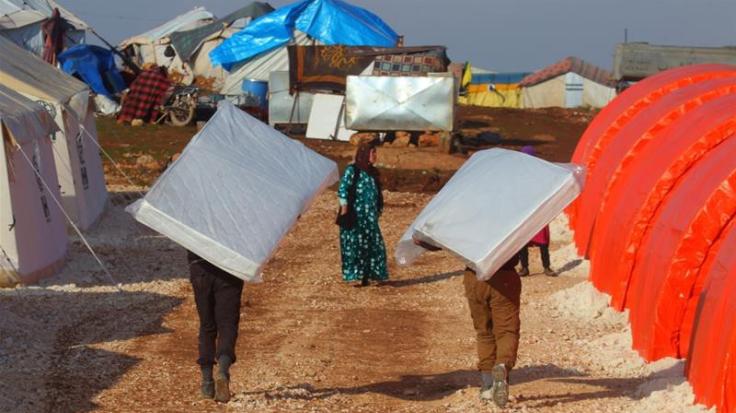Syria's displaced: 'This Ramadan is full of grief'

Hundreds of Syrian families continue to languish in refugee camps, facing poverty and difficult conditions after being displaced from their homes and towns.
Since 2014, both the Syrian government and armed opposition groups have reached a series of agreements in a number of besieged areas, mainly aimed at allowing armed opposition fighters to leave government-besieged cities and towns to opposition-held areas in northern Syria, near the borders with Turkey.
Under such evacuation deals, thousands of rebels, along with their families, have been forced to surrender as a result of intense government shelling and sieges across a number of opposition-held towns around the capital Damascus, as well as in Aleppo and Homs.
While the government views such agreements as an opportunity for civilians to flee to safer areas, opposition groups, activists, and some civilians view the deals as a form of forced displacement.
In December 2016, the Syrian government recaptured Aleppo from rebels and the subsequent evacuation deal gave the Syrian army and its allies full control of the city after years of fighting. The United Nations said the forced displacement of eastern Aleppo amounted to a "war crime".
Most have been transferred to the northern suburbs of Aleppo, and Idlib, which now hosts over 900,000 displaced Syrians, placing a significant strain on local communities and resources.
Al Jazeera spoke to two families who were relocated from Aleppo and the Damascus suburbs to camps in Idlib's suburbs.
Source: AL Jazeera
